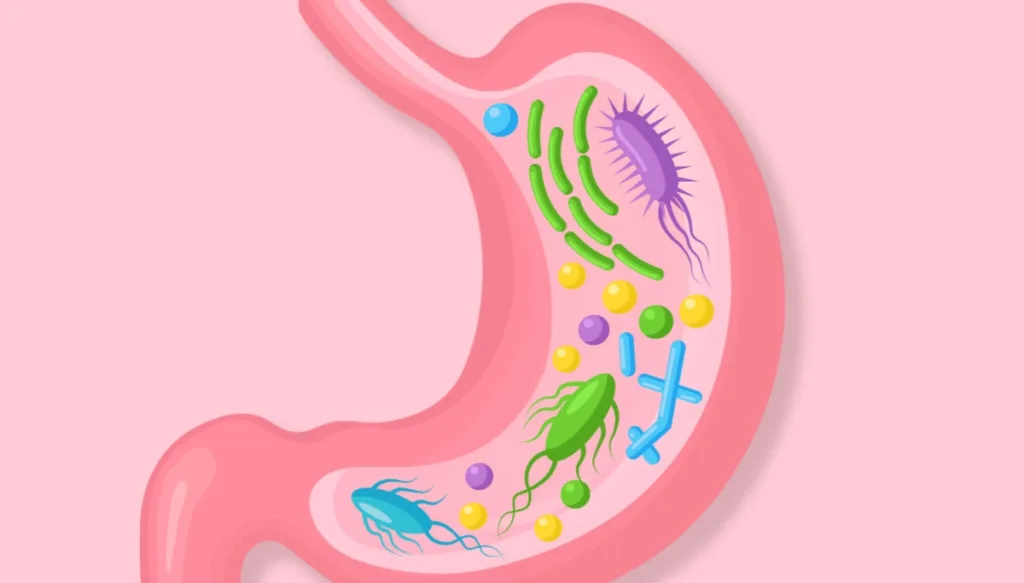How to Improve Gut Health:
The gut, often referred to as the digestive tract, is a complex system in our body responsible for processing the food we eat. It includes the stomach, small intestine, and large intestine. Gut health, therefore, is the well-being of this intricate system. A healthy gut is essential for efficient digestion, absorption of nutrients, and overall well-being. It houses trillions of microorganisms, collectively known as the gut microbiome, playing a crucial role in various bodily functions. Maintaining a balanced diet, staying hydrated, and incorporating probiotics are key factors in promoting optimal gut health. A happy gut contributes to improved digestion, better nutrient absorption, and overall good health.
what it’s Important, How to Improve Gut Health:
Prioritizing gut health is like tending to your body’s control center. A well-maintained gut is crucial for overall well-being, impacting digestion, nutrient absorption, and even immune function. The gut is home to a diverse community of microorganisms, collectively shaping our health. By fostering a balanced diet rich in fiber, incorporating probiotics, and staying hydrated, you actively support a harmonious gut environment. This not only enhances digestion but also contributes to increased energy levels and a resilient immune system. Nurturing your gut is a small investment with big returns for your overall health and vitality.
How to Improve Gut Health :Inflammation vs Gut Health?
Inflammation, when persistent, can disrupt the delicate balance of your gut health. Imagine your gut as a thriving ecosystem, and inflammation as a storm wreaking havoc. Chronic inflammation may lead to digestive issues, disrupting the absorption of nutrients and compromising the gut barrier. This can contribute to conditions like irritable bowel syndrome (IBS) or inflammatory bowel disease (IBD). Taking steps to reduce inflammation through a balanced diet, rich in anti-inflammatory foods, and maintaining a healthy lifestyle can play a crucial role in safeguarding your gut. By understanding and addressing inflammation, you pave the way for a happier, healthier digestive system.
What is Signs of Poor Gut Health and Inflammation:
Your body often communicates its well-being through signs, and when it comes to gut health and inflammation, paying attention is key. Persistent bloating, irregular bowel movements, and digestive discomfort can signal an imbalance in your gut. Inflammation may manifest as joint pain, fatigue, or skin issues. Listen to your body; it might be telling you that your gut needs attention. By recognizing these signs early on, you can take proactive steps, such as incorporating gut-friendly foods and managing stress, to restore balance and promote a healthier, happier you.

Best Ways To Improve Gut Health
With An Effective Anti Inflammatory Diet Plan:
How to Improve Gut Health, Unlocking the Secret to Gut Health: Opting for an Anti-Inflammatory Diet Plan, How to Improve Gut Health
Maintaining a healthy gut is key to overall well-being, and one effective way to achieve this is by adopting an anti-inflammatory diet plan. Chronic inflammation in the gut can lead to various health issues, including digestive problems, autoimmune disorders, and even mental health issues. In this guide, we will explore the best ways to enhance your gut health through an anti-inflammatory diet.
Understanding the Anti-Inflammatory Diet:
An anti-inflammatory diet focuses on consuming foods that help reduce inflammation in the body, particularly in the gut. This diet emphasizes whole, nutrient-rich foods while minimizing processed and inflammatory ones. Here are some key components of an anti-inflammatory diet:
Load Up on Fruits and Vegetables:
Incorporate a rainbow of fruits and vegetables into your meals. These foods are rich in fiber, vitamins, and antioxidants, which promote a healthy balance of gut bacteria and help reduce inflammation.

Choose Whole Grains: How to Improve Gut Health
Opt for whole grains like quinoa, brown rice, and oats instead of refined grains. Whole grains provide fiber that supports a healthy digestive system and helps in maintaining gut integrity.
Healthy Fats are Your Friends:
Include sources of healthy fats such as avocados, olive oil, and fatty fish like salmon. These fats contain omega-3 fatty acids, which have anti-inflammatory properties and contribute to a balanced gut environment.
Lean Proteins:
Prioritize lean protein sources like poultry, fish, tofu, and legumes. Protein is essential for tissue repair and maintaining a healthy gut lining.
Probiotics and Fermented Foods:
Introduce probiotics into your diet through yogurt, kefir, sauerkraut, and kimchi. These foods contain beneficial bacteria that support gut health by maintaining a diverse microbiome.
Cut Back on Sugar and Processed Foods:
Reduce your intake of refined sugars and processed foods, as they can contribute to inflammation in the gut. Focus on natural sweeteners like honey or maple syrup in moderation.
Limit Dairy and Gluten: How to Improve Gut Health
Some individuals may benefit from reducing or eliminating dairy and gluten from their diet, as these can be potential triggers for inflammation in certain people.
Hydration Matters:
Staying well-hydrated is crucial for a healthy gut. Water helps flush toxins from the body and aids in the digestion and absorption of nutrients. Aim for at least eight glasses of water a day and consider herbal teas for added benefits.
Lifestyle Factors:
In addition to dietary changes, certain lifestyle factors can enhance the effectiveness of an anti-inflammatory diet in promoting gut health. These include:
Regular Exercise:
Engage in regular physical activity to promote a healthy gut. Exercise has been linked to a more diverse gut microbiome and reduced inflammation.
Adequate Sleep:
Ensure you get enough quality sleep. Poor sleep patterns can negatively impact gut health and increase inflammation.
Stress Management:
Practice stress-reducing techniques such as meditation, yoga, or deep breathing exercises. Chronic stress can contribute to gut inflammation, so finding ways to manage stress is crucial.
Discover the Healing Power of Foods : To Reducing Inflammation in Your Body:
How to Improve Gut Health:
Inflammation, the body’s natural response to injury and infection, can become problematic when it persists for extended periods. Chronic inflammation is associated with various health issues, from arthritis to heart disease. The good news is that you can take charge of your health by incorporating anti-inflammatory foods into your diet. Let’s explore a variety of delicious and nutritious options that can help soothe inflammation in your body.
Fatty Fish: Omega-3 Rich Goodness
Fatty fish such as salmon, mackerel, and sardines are rich in omega-3 fatty acids. These essential fats are known for their anti-inflammatory properties, helping to reduce inflammation at the cellular level. Aim to include fatty fish in your diet at least twice a week for optimal benefits.
Berries: Antioxidant Powerhouses
Blueberries, strawberries, raspberries, and blackberries are not only delicious but also packed with antioxidants. These antioxidants neutralize free radicals in the body, reducing oxidative stress and inflammation. Enjoy a handful of berries as a snack, add them to your morning yogurt, or include them in smoothies.
Leafy Greens: Nutrient-Rich Allies
Spinach, kale, Swiss chard, and other leafy greens are nutrient powerhouses. Rich in vitamins, minerals, and antioxidants, these greens contribute to overall health and possess anti-inflammatory properties. Incorporate them into salads, soups, or smoothies for a nutritional boost.
Turmeric: Golden Spice for Healing
Turmeric, with its active compound curcumin, is a well-known anti-inflammatory spice. Use it in curries, soups, or stews to add flavor and harness its potential anti-inflammatory benefits. Consider pairing turmeric with black pepper to enhance curcumin absorption.
Broccoli: Cruciferous Excellence, How to Improve Gut Health
Broccoli and other cruciferous vegetables like cauliflower and Brussels sprouts contain sulforaphane, a compound with anti-inflammatory effects. These vegetables are not only tasty when roasted or steamed but also contribute to a healthy inflammatory response.

Nuts and Seeds: Healthy Snacking
Almonds, walnuts, flaxseeds, and chia seeds are rich in nutrients and healthy fats, including omega-3 fatty acids. Snack on a handful of nuts or add seeds to your salads, oatmeal, or yogurt for a crunchy and anti-inflammatory boost.
Ginger has been used for centuries for its medicinal properties, including its anti-inflammatory effects. Add fresh ginger to your tea, stir-fries, or smoothies for a zesty kick and potential health benefits.
Green Tea: Sip Your Way to Wellness, How to Improve Gut Health
Green tea is loaded with polyphenols, powerful antioxidants that have anti-inflammatory properties. Swap your regular cup of tea for green tea to enjoy its potential health benefits and soothing effects on inflammation.
Olive Oil: Liquid Gold for Health
Extra virgin olive oil is not just a kitchen staple; it’s a key component of the Mediterranean diet known for its anti-inflammatory properties. Use it as a salad dressing or for light sautéing to harness its healthful benefits.
Dark Chocolate: A Sweet Indulgence
Dark chocolate with a high cocoa content is rich in flavonoids, antioxidants that may have anti-inflammatory effects. Enjoy a piece of dark chocolate in moderation for a delightful treat with potential health benefits.
Final Thoughts, How to Improve Gut Health :
Investing in your gut health is a journey toward overall well-being. By embracing an anti-inflammatory diet rich in colorful fruits, vegetables, and nourishing foods, you can create a supportive environment for your gut microbiome. Don’t forget the powerful allies like turmeric, fatty fish, and probiotic-rich foods.
Combine these choices with stress management and hydration for a holistic approach. Small changes in your daily habits can lead to significant improvements in your gut health, paving the way for a healthier, happier you. Here’s to a vibrant life fueled by the goodness of gut-friendly choices.







